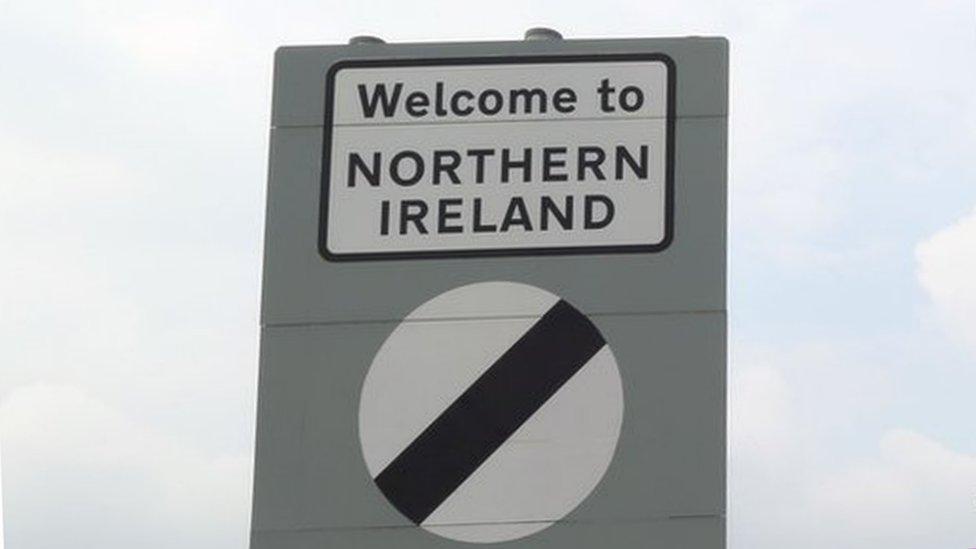Stormont deadlock stalling key reforms, warns Sterling
- Published
- comments
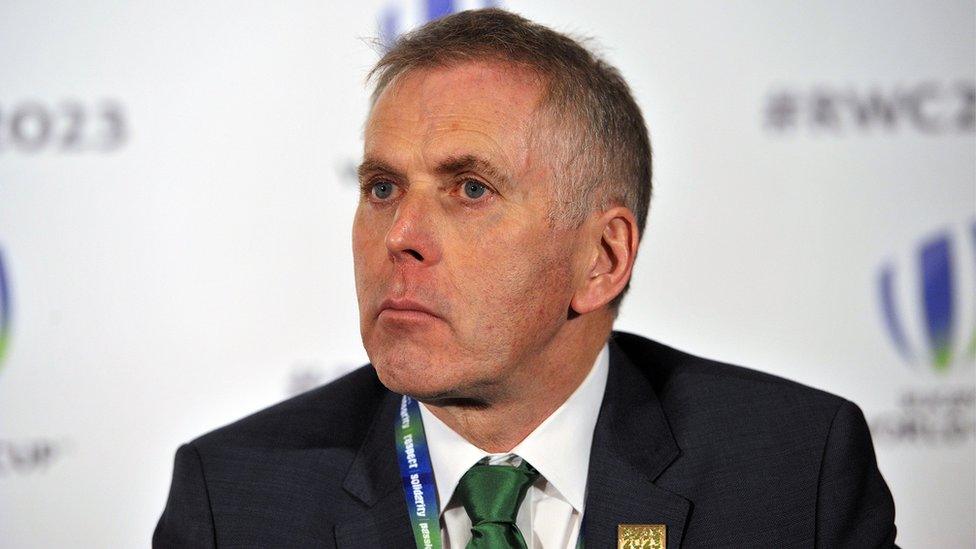
"Our children will be the losers" if power sharing does not return, warned David Sterling
Urgent reforms in health, education and social housing are being held up by the lack of a Stormont executive, the head of the Northern Ireland Civil Service has warned.
David Sterling made the remarks in a speech this week.
He warned of the "real prospect" that the Housing Executive will have to start "mothballing" some properties.
Mr Sterling said the situation in social housing will "continue to deteriorate" without ministers.
There has been no power-sharing executive in place for almost two years after the resignation of Martin McGuinness as deputy first minister in January 2017.
Northern Ireland's most senior civil servant said a large backlog of planned housing maintenance has built up over the past decade.
'Significant decisions needed'
He warned that it cannot be addressed "solely or even mainly by additional public expenditure" but needed "a fundamental restructuring".
That would allow funding for housing investment to be drawn from a variety of sources, as happens everywhere else in the UK.
Mr Sterling said detailed plans and proposals have been drawn up by Stormont's Department for Communities and the Housing Executive but they could not be implemented without ministers.
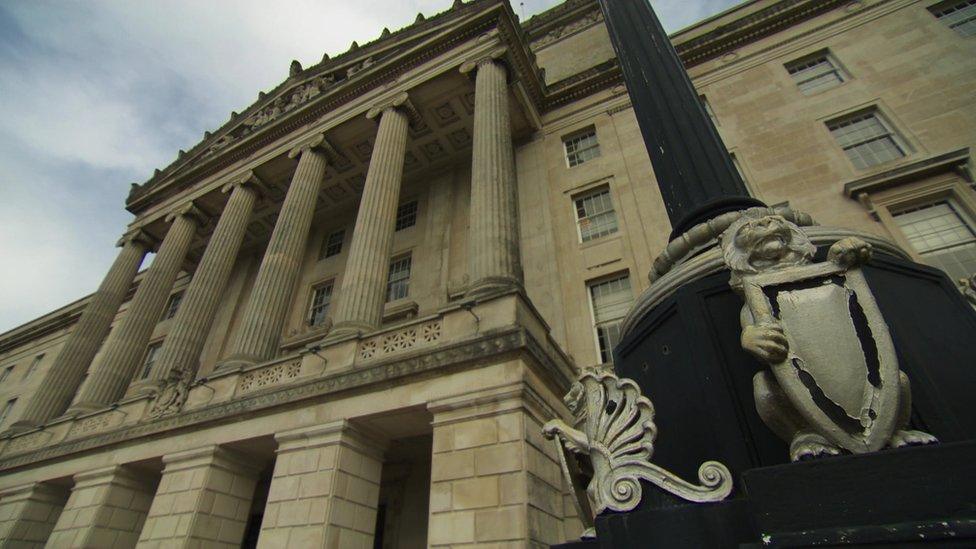
An executive has not been in place at Stormont since January 2017
He pointed to a similar situation in education where officials have been drawing up a transformation programme aimed at tackling a funding crisis in schools.
But he said that programme "will quickly reach the point where significant policy decisions, or perhaps legislation, are needed".
"And that in turn needs an education minister, an executive and an assembly providing strong direction and leadership," he added.
"Without this, the necessary transformation will not happen and it will be our children who will be the losers."
'Significant gap'
Mr Sterling said a health transformation plan approved by the Stormont parties in 2016 was being implemented by civil servants.
But he added that there were limits to what could be done without ministers in place.
The previous executive agreed that transformation could only be achieved if extra money was made available over and above what is used to deliver services.
Mr Sterling said: "With no assembly or executive in place to support this agreement, there remains a significant gap between what is needed and the resources available."
He said the extra £100m from the DUP confidence-and-supply agreement with the Conservative government has allowed the health sector to "build strong foundations" but that there are are important decisions - on future funding and service delivery - which require ministerial approval.
- Published8 October 2018
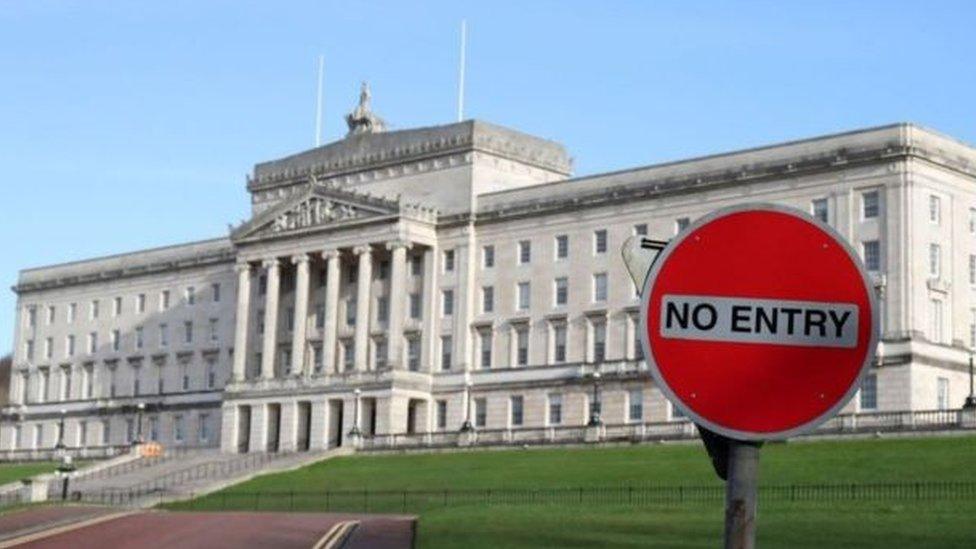
- Published7 August 2019
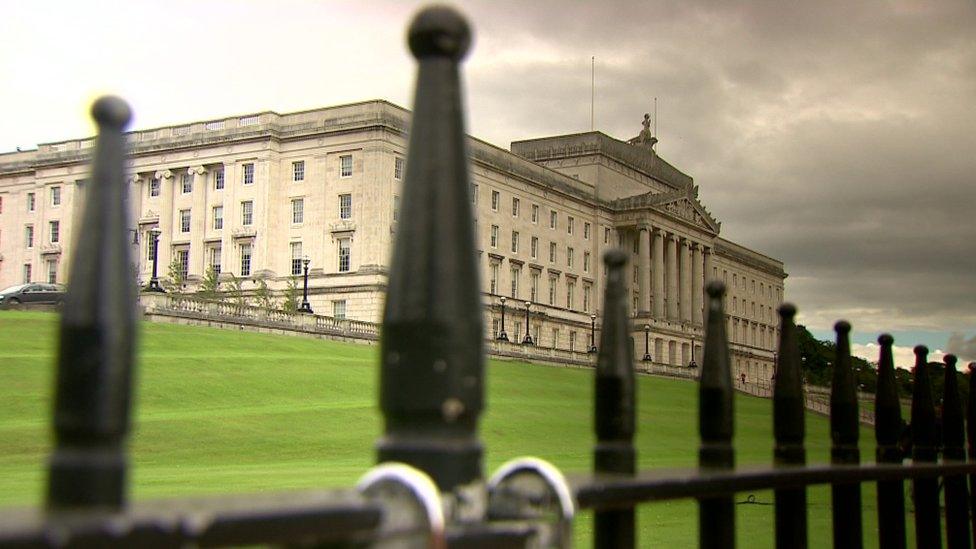
- Published24 August 2018
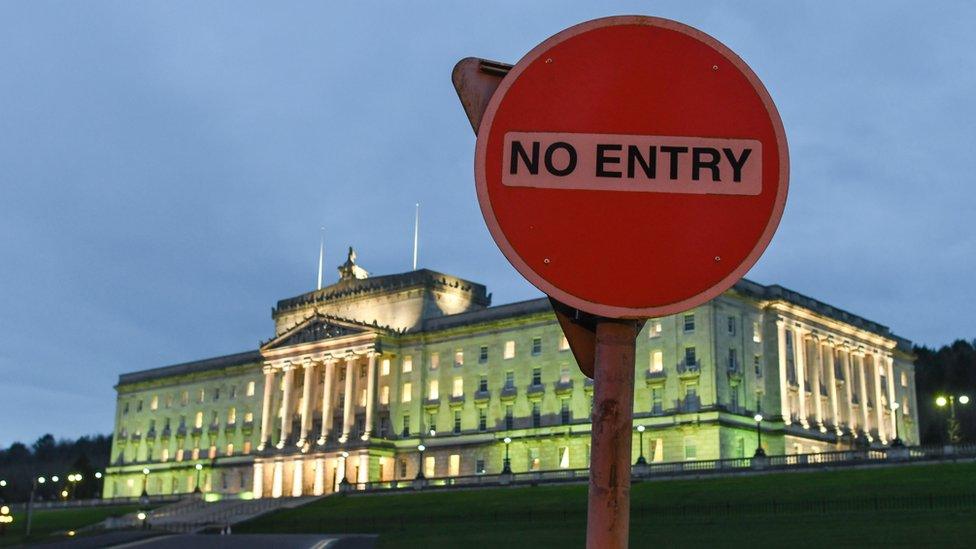
- Published9 January 2018
